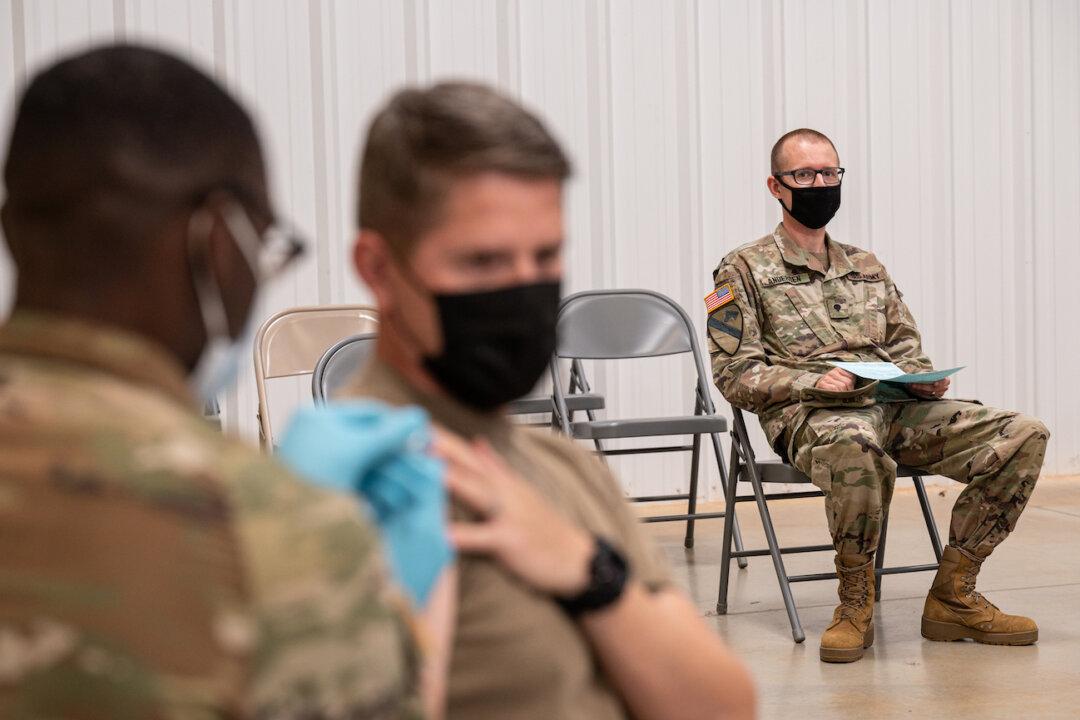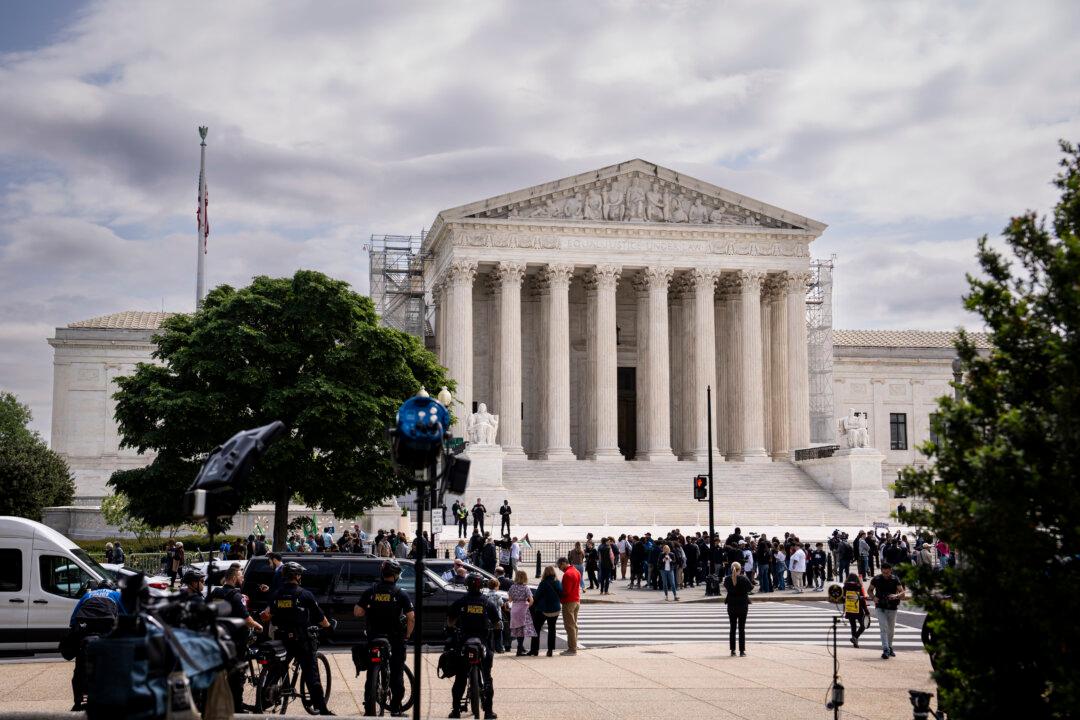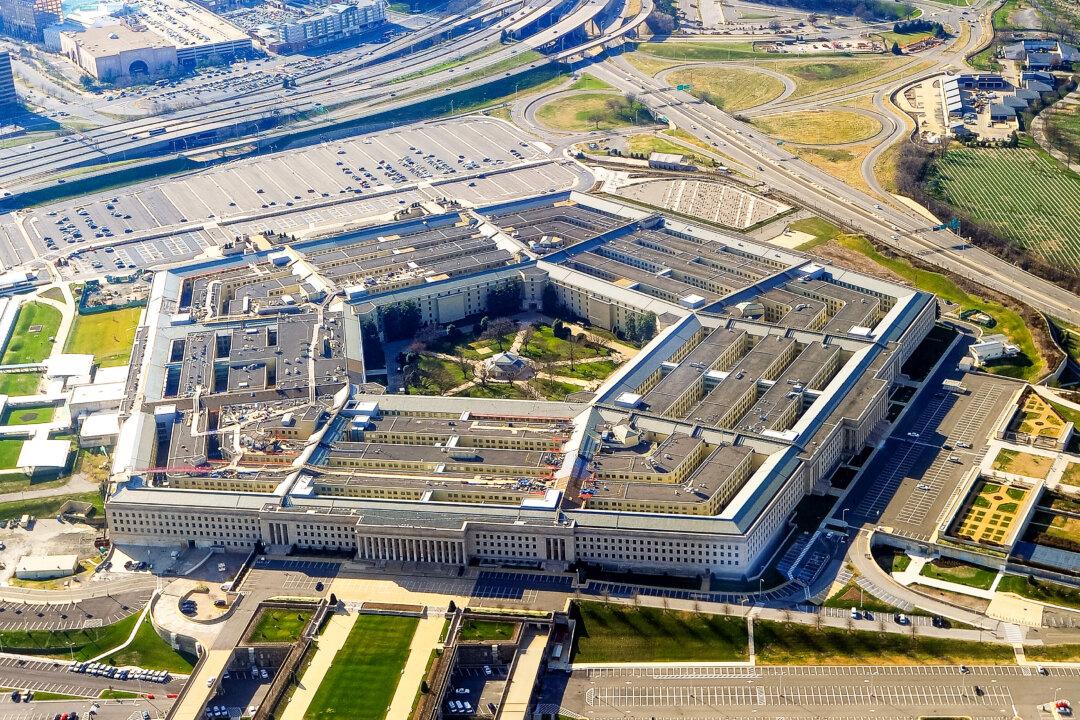An Army captain was separated from the service for refusing to take the COVID-19 vaccine as the GOP attempts to roll back Secretary of Defense Lloyd Austin’s military vaccine mandate.
Capt. Stephen Rogerson (a pseudonym) has served in the Army for 17 years, and on Dec. 6, a three-person administrative board voted to separate him from service. On the same day, the House passed an $858 billion defense funding bill, the National Defense Authorization Act (NDAA) for the fiscal year 2023, that included a provision to rescind the military’s COVID-19 vaccine mandate.




